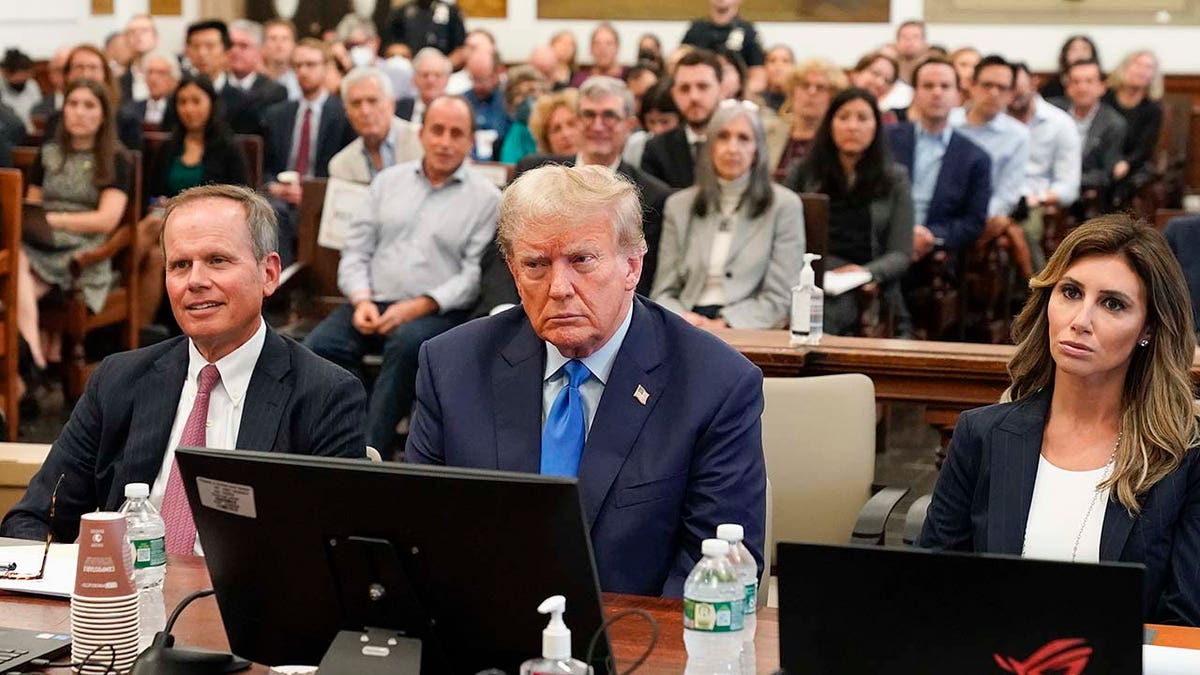OpenAI's ChatGPT Under FTC Scrutiny: Implications For AI Regulation

Table of Contents
The FTC's Investigation into ChatGPT: Key Concerns
The FTC's investigation into ChatGPT centers around several key concerns related to consumer protection, data privacy, and the potential for misuse. The agency is examining whether OpenAI engaged in unfair or deceptive trade practices, particularly regarding the chatbot's potential to generate biased, inaccurate, or harmful content. This investigation is not simply about a single company; it's a bellwether for the broader conversation around responsible AI development and the need for robust ChatGPT regulation.
-
Allegations of unfair or deceptive trade practices: The FTC is scrutinizing whether ChatGPT's outputs are misleading or cause undue harm to consumers. This includes analyzing claims made about the chatbot's capabilities and limitations. The potential for users to be misled by seemingly factual but inaccurate information is a major concern.
-
Concerns regarding the potential for biased or harmful outputs: ChatGPT, like many large language models (LLMs), has been shown to exhibit biases reflecting the data it was trained on. The FTC is investigating whether these biases lead to discriminatory outcomes or perpetuate harmful stereotypes, raising significant ethical and legal questions.
-
Questions about the accuracy and transparency of ChatGPT's data collection and usage: The investigation will likely delve into how OpenAI collects, uses, and protects user data. Concerns include the potential for unauthorized data collection, lack of transparency about data practices, and insufficient safeguards against data breaches.
-
Potential violations of COPPA (Children's Online Privacy Protection Act): The use of ChatGPT by minors raises concerns about compliance with COPPA, requiring specific protections for children's data. The FTC will likely examine whether OpenAI has implemented adequate measures to safeguard children's privacy.
-
Lack of adequate safeguards against misuse: The potential for malicious actors to exploit ChatGPT's capabilities, such as generating disinformation or engaging in phishing scams, is another key area of concern. The FTC is assessing whether OpenAI has taken sufficient steps to mitigate these risks.
Potential Impacts on OpenAI and the Broader AI Industry
The FTC's investigation carries significant potential consequences for OpenAI and the broader AI industry. A negative outcome could result in substantial fines, mandatory changes to data handling practices, limitations on ChatGPT's capabilities, and increased regulatory oversight. This would send a ripple effect across the AI landscape, prompting other AI developers to re-evaluate their practices and potentially slowing innovation.
-
Increased scrutiny for all AI developers: The investigation sets a precedent for increased scrutiny of all AI developers, demanding greater accountability and transparency. Companies developing similar large language models will face heightened pressure to demonstrate responsible AI development practices.
-
Pressure to implement stronger ethical guidelines and safety protocols: The FTC investigation is pushing the AI industry to prioritize ethical considerations and implement stronger safety protocols to mitigate potential harms. This includes developing better methods for detecting and mitigating bias, ensuring data privacy, and preventing misuse.
-
Potential for slowing innovation due to increased regulatory burden: While regulation is necessary, the increased regulatory burden could potentially slow innovation in the AI field. Companies may be hesitant to invest in new technologies if compliance costs become excessively high.
-
Increased costs associated with compliance and risk management: Implementing robust ethical guidelines, data protection measures, and compliance procedures will inevitably increase the costs associated with AI development and deployment.
-
Potential for increased litigation surrounding AI-related issues: The FTC's actions may embolden individuals and organizations to pursue legal action against AI companies for harms caused by their products, further increasing costs and risks.
The Need for Comprehensive AI Regulation: A Global Perspective
The FTC's investigation underscores the urgent need for clear, comprehensive AI regulations on a global scale. Currently, a unified framework for AI governance is lacking, leading to inconsistencies and challenges in regulating AI technologies across borders. Various legislative efforts are underway globally to address this gap.
-
The importance of establishing clear guidelines for data privacy and security in AI systems: Protecting user data is paramount, and regulations must mandate robust data security measures and transparent data handling practices.
-
Addressing issues of algorithmic bias and ensuring fairness and accountability: Regulations must address the issue of algorithmic bias, ensuring AI systems are fair, equitable, and do not perpetuate discrimination. Mechanisms for accountability should be established for harms caused by biased AI systems.
-
Promoting transparency and explainability in AI decision-making: Regulations should promote transparency and explainability in AI decision-making processes, empowering users to understand how AI systems arrive at their conclusions.
-
Establishing mechanisms for redress in cases of AI-related harm: Clear mechanisms for redress should be established to provide recourse for individuals harmed by AI systems.
-
International cooperation to develop harmonized AI regulations: International cooperation is crucial to develop harmonized AI regulations that ensure consistent standards and avoid regulatory arbitrage.
Specific Regulatory Frameworks Being Considered
Several regulatory frameworks are under consideration globally, including the EU's AI Act, which aims to classify AI systems based on risk level and impose stricter regulations on high-risk systems. Other countries and regions are also developing their own AI regulatory frameworks, reflecting a growing global consensus on the need for responsible AI governance.
Conclusion
The FTC's investigation into ChatGPT is not just about one company; it highlights the crucial need for robust and responsible AI regulation. The implications are far-reaching, impacting the development, deployment, and ethical considerations of AI technologies worldwide. The future of AI hinges on establishing a comprehensive regulatory framework that balances innovation with consumer protection and societal well-being. To stay informed about the evolving landscape of ChatGPT regulation and its impact on the future of AI, continue to follow developments in this crucial area. Understanding the ongoing discussion about AI regulation is vital for both developers and users. Learn more about the implications of ChatGPT regulation and how it could shape the future of technology.

Featured Posts
-
 Open Ai And Chat Gpt The Ftc Investigation And The Future Of Ai
May 10, 2025
Open Ai And Chat Gpt The Ftc Investigation And The Future Of Ai
May 10, 2025 -
 Dijon Et Gustave Eiffel Une Histoire Familiale Revelee
May 10, 2025
Dijon Et Gustave Eiffel Une Histoire Familiale Revelee
May 10, 2025 -
 Nyt Strands Crossword Puzzle April 12 2025 Theme Clues And Solutions
May 10, 2025
Nyt Strands Crossword Puzzle April 12 2025 Theme Clues And Solutions
May 10, 2025 -
 Attorney Generals Threat Understanding The Implications For Trumps Opponents
May 10, 2025
Attorney Generals Threat Understanding The Implications For Trumps Opponents
May 10, 2025 -
 Tragic Fate Of Americas First Nonbinary Person
May 10, 2025
Tragic Fate Of Americas First Nonbinary Person
May 10, 2025
